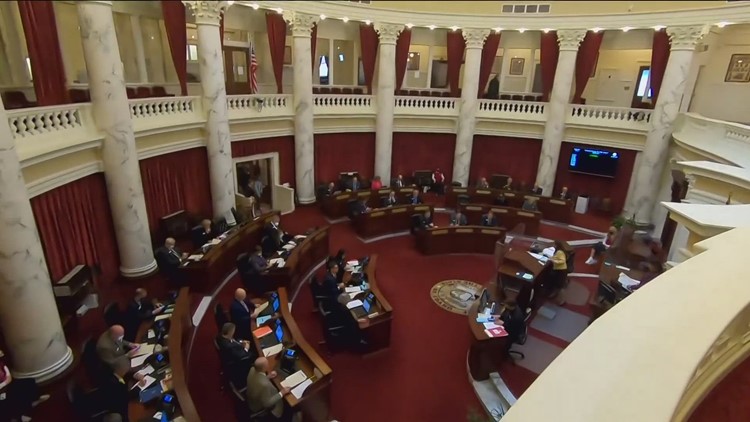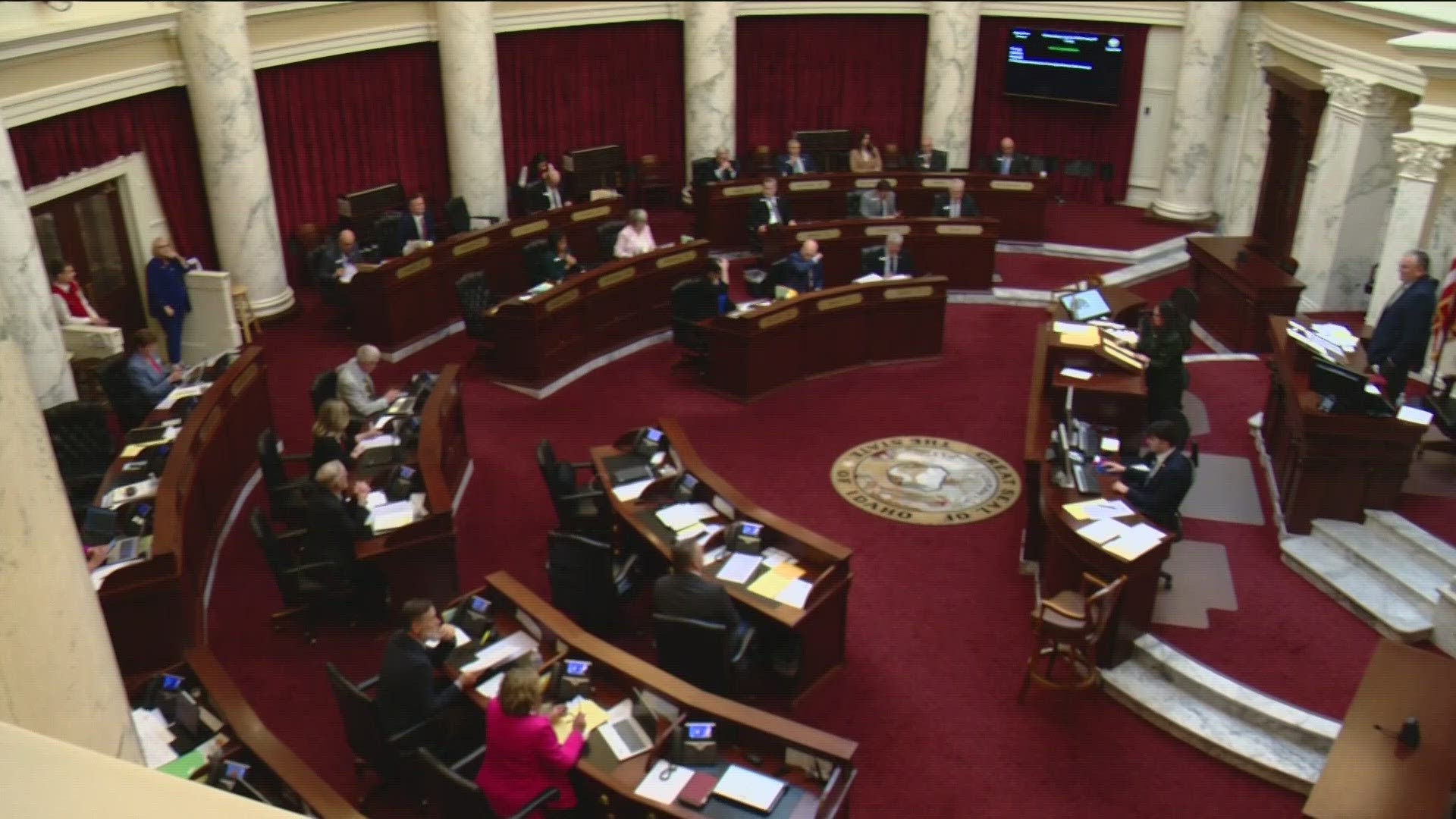BOISE, Idaho — "This is part of the hardest bill I have seen before us, because of what is at stake," Sen. Melissa Wintrow, D-Boise, told the Idaho Senate, right before they voted 22-12 to pass a ban on gender affirming care for minors.
What is at stake? According to some lawmakers and parents -- it could be transgender children's' lives.
"'I cannot imagine if that right was taken away from us. Please do not take away a lifeline for parents to save their child,'" Wintrow said, as she read a letter from a constituent on the floor. "'It is okay for people to disagree but please do not take away that lifeline. Transgender people have always been here. You can either push them over the edge or help pull them away from the edge.'"
H71, "The Vulnerable Child Protective Act" bans gender affirming care for minors in the state of Idaho and would bar transgender and transitioning children, or children with gender dysphoria, from receiving any type of hormones or puberty blockers to alleviate their symptoms or help with transitioning. If a doctor did prescribe these hormones or blockers, they could be charged with a felony and face prison time.
It would also ban transitional surgeries for minors, but there is nothing to suggest those surgeries currently take place in Idaho for people under 18.
The bill will head to Gov. Brad Little's desk for a veto or a signature. The Idaho House approved the amendments on Tuesday afternoon, a day after the Senate passed the legislation.
Little could also let the bill pass into law without his signature. If signed into law, it would take effect on Jan. 1, 2024.
According to Little's office, as of Tuesday afternoon, they've received 96 phone calls and 34 emails to veto the bill. The office has received 21 phone calls and 29 emails to sign it.
The American Academy of Pediatrics (AAP), an organization of 67,000 primary care doctors and specialists, recommend gender affirming care as a way to treat children who are struggling with gender dysphoria. AAP states in regard to gender affirming care: "Providers work together to destigmatize gender variance, promote the child’s self-worth, facilitate access to care, educate families, and advocate for safer community spaces where children are free to develop and explore their gender."
Those who struggle with gender dysphoria are more likely to exhibit suicidal thoughts or attempts, AAP states.
Throughout the debate on the Senate floor, many senators voiced their concerns about the bill being "cruel" and going too far. Some pointed out how the legislature has constantly passed bills in the name of "parental rights" but H71 restricts parents' rights to make medical decisions for their children.
All Democrats voted against the bill, with a handful of Republicans including Linda Wright Hartgen, R-Twin Falls.
Hartgen told the Senate she spoke to two parents in the military who have been seeking gender affirming care for their child.
"She and her husband are active duty. They are deployed to go out and fight for our nation and fight for the freedom of other countries, and yet they come home, and they have to fight the Idaho Legislature to find health care for their children," Hartgen said.
Sen. Treg Bernt, R-Meridian, said he "couldn't imagine" sitting down with a child and discussing the struggles they are facing, and only being able to offer them a hug. Bernt said he felt in his bones this is a sensitive issue that isn't being addressed lightly. As someone with a transitioned family member, Bernt said, it "hits home."
"I always favor parental rights," Bernt said. "But I will always err on the side of freedom." Bernt voted against the bill.
Many in favor of the bill, like Sen. Tammy Nichols of Middleton, claimed that puberty blockers and hormones cause irreversible damage to a child and medical communities aren't addressing other issues.
"Parents are being coerced by medical and mental health care communities by being told that if you don't do this, you're either going to have a dead child, or you're going to have a live trans child," Nichols said.
Sen. Todd Lakey, R-Nampa, echoed Nichols, saying that he was told by a doctor hormones are reversible but that a surgery can fix the effects of it.
"I come here especially in the context of children to do no harm, and I think that's what we're trying to do," he said.
Sen. Chris Trakel, R-Caldwell, said that children with gender dysphoria have underlying mental illnesses, and those aren't being addressed in priority over issuing hormones or puberty blockers.
"Antidepressants came along, anti-psychotics came along, so rarely are lobotomies ever used, only in extreme situations. These are decisions that will affect the child for the rest of their life," Trakel said.
AAP states this type of therapy, "is unique among gender-affirming medical interventions in that the resultant pubertal suppression is fully reversible."
The Idaho Press recently reported that Idaho "lacks the number of counselors necessary to adequately serve the community in general, let alone transgender individuals." Not every program covers the insurance to even get counseling for mental health issues to begin with, creating an economic barrier, the Idaho Press reported.
Even so, in prior testimony to the Senate State Affairs Committee, a representative from the AAP, Jessica Duvall, told the committee that before a child with gender dysphoria begins hormones or puberty blockers, it can take years of counseling and consulting in the first place.
H71 previously passed the House 58-12, with Rep. Matthew Bundy, R-Mountain Home, being the only Republican to vote against it.
Watch more Idaho politics:
See all of our latest political coverage in our YouTube playlist:



